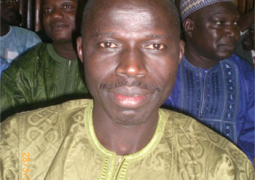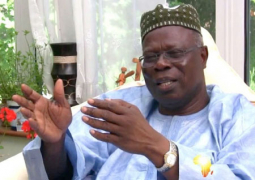They were speaking to journalists at a press briefing held at Dalagass Community in CRR after the launching of the declaration by the Gambia government in ending open defecation in The Gambia by 2017.
The Minister of Health, Dr Omar Sey, said sensitizing people on ending open defecation is in line with their policies, hence they have developed the operational plan to tackle the problem.
“We are not addressing the issues using force, but we are addressing it for people to know what is at stake; that is why the health promotion directorate is championing it so that the correct message goes to the community,” he said.
Pa Ousman Jarju, Minister of the Environment, in his remarks on the occasion, called for behavioural change, as they had put in facilitating measures to end open defecation.
“This is why we have a directorate of health promotion. People have to be convinced that they need to have good hygiene practices,” he said.
He added that they have been working with UNICEF to strengthen the capacity of natives throughout the country to be able to build very good toilets that are sustainable.
He also said part of the community-led sanitation programme has been implemented under the department of Water Resources through the Rural Water Supply Sanitation Project.
UNICEF representative Sara Beysolow Nyanti, in her statement, said sustainability should be looked at holistically.
The pronouncement of the declaration is really bringing together all of the actions over the past few years, “so The Gambia is at the last rush towards being totally open defecation-free,” she said.
“If it was not sustainable they would not be at this particular point, because it is the community that is taking responsibility and it is the community that is in charge of their own health, and they would like to live longer.”
On the justification of UNICEF’s taking part in the campaign,
Mrs Nyanti said UNICEF are pleased to take part in the campaign as they work in terms of supporting government, although they work earnestly with the people to fulfill the rights of children because “children have right to education, health, play, and being free from violence”.
She said children must be able to go to school and learn and play to the fullest development of their potential, “and environmental sanitation contributes to that”.
“This is in line with ensuring that children are provided with the right environment which they can grow in,” she said.




